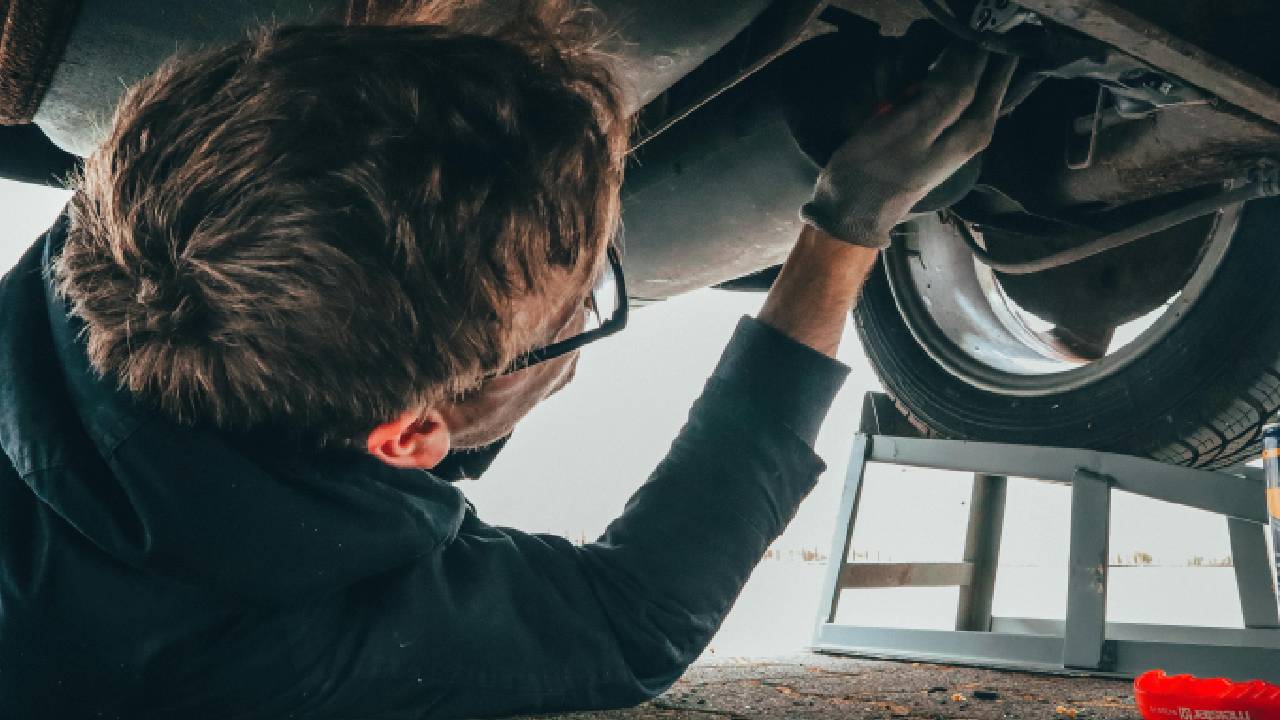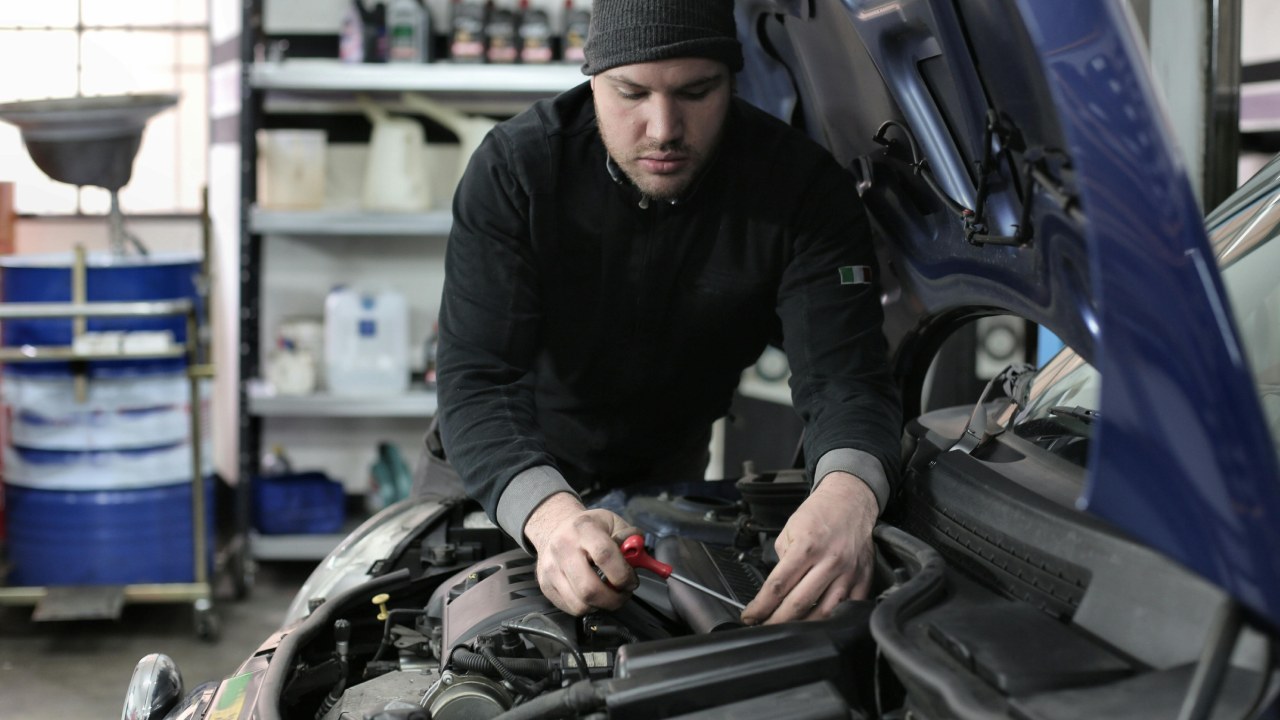With the increasing cost of professional auto repairs and the wealth of online tutorials, DIY auto repair is gaining traction among car enthusiasts and hobbyists alike. Ever wondered if you could fix that pesky engine rattle or replace those worn-out brake pads yourself? You’re not alone. Many are exploring the world of DIY auto repair, but is it the right choice for everyone?
This post will guide you through the pros and cons of DIY auto repair, the skills and tools required, and common tasks you can tackle on your own. We’ll also help you know when it’s best to call in the professionals. By the end, you’ll have a clearer picture of whether you’re ready to grab those wrenches or if you’re better off leaving it to the experts.
Weighing the Pros and Cons of DIY Auto Repair
The Upside of Doing It Yourself
One of the most appealing aspects of DIY auto repair is the potential for significant cost savings. Labor costs at a repair shop can add up quickly, often doubling or even tripling the price of a repair job. By taking matters into your own hands, you can save a tidy sum.
Additionally, there’s a unique satisfaction in fixing something yourself. Accomplishing a repair can boost your confidence and give you a sense of pride in your handiwork. Plus, it allows you to learn more about how your car works, turning an intimidating machine into an understandable piece of technology.
The Risks and Downsides
However, DIY auto repair isn’t without its pitfalls. Safety is a significant concern. Without the proper knowledge or tools, you could inadvertently put yourself or others at risk, especially if the repaired vehicle is used for everyday travel. Misdiagnoses or mistakes during repairs can lead to costly damage or even accidents.
Another downside is the potential for mistakes that could lead to even more costly repairs down the line. Without the expertise of a professional, it’s easy to overlook critical details. A seemingly small error could balloon into a significant issue, negating any initial savings.
Determining Your Skill Level and Required Tools
Assessing Your Abilities
Before you get too carried away with the idea of tackling car repairs, it’s crucial to assess your current skill level. Are you comfortable working with your hands, and do you have a basic understanding of automotive systems? If not, you might want to start small and gradually work your way up as you gain experience.
Gathering the Right Tools
For most DIY repairs, a basic set of tools is essential. This includes items like wrenches, screwdrivers, and pliers. More complex repairs might require specialized tools, such as a hydraulic jack or a torque wrench. Investing in good-quality tools will not only make the job easier but also ensure safety and accuracy.
Learning and Growing
Improving your skills requires time and practice. Start with simple tasks and gradually tackle more complex repairs as you build confidence. Online tutorials, automotive books, and community workshops can provide valuable guidance and insights along the way.
Tackling Common DIY Auto Repairs
Oil Changes Made Simple
One of the most straightforward tasks for DIYers is changing the oil. It’s a relatively simple process that can save a considerable amount of money over time. You’ll need an oil filter, oil filter wrench, new oil, and a drain pan. The process involves draining the old oil, replacing the filter, and adding fresh oil to the engine.
Brake Pad Replacement
Replacing brake pads is another common task for those comfortable with DIY auto repair. This job requires a bit more skill and attention to detail, as brakes are a critical safety component. The process involves removing the wheels, taking out the old brake pads, and installing new ones. Proper alignment and securing of the components are crucial.
Changing a Flat Tire
Flat tires are an inevitable part of car ownership, and knowing how to change one is a valuable skill. You’ll need a spare tire, a jack, and a lug wrench. The process involves lifting the car, removing the flat tire, and replacing it with the spare. It’s an essential skill that every car owner should master.
Knowing When to Call in the Pros
Recognizing Your Limits
While DIY auto repair can be rewarding, some jobs are best left to the professionals. If a repair requires specialized tools or knowledge that you lack, it’s wise to seek expert help. Attempting a complex repair without the proper skills could lead to more harm than good.
Listening to Your Car
Unusual noises, persistent issues, or dashboard warning lights are red flags that may indicate more severe problems. If a repair doesn’t resolve the issue, it’s crucial to consult a professional to prevent further damage.
Avoiding Costly Mistakes
It’s important to recognize when the potential risks outweigh the benefits. If you’re unsure about any aspect of a repair, it’s better to play it safe and seek professional assistance. In the long run, it could save you time, money, and stress.
Staying Safe During DIY Auto Repairs
Prioritizing Safety First
Safety should always be your top priority when working on your car. Before starting any repair, ensure you have a clear workspace, and your tools are in good condition. Wear appropriate clothing and avoid loose items that could get caught in moving parts.
The Importance of Protective Gear
Wearing the right protective gear is essential for staying safe. Safety glasses, gloves, and steel-toed boots can protect you from potential hazards. A dust mask or respirator is also recommended when working with chemicals or dusty environments.
Handling Tools Safely
Proper tool handling is crucial for a successful and safe repair job. Always follow manufacturer instructions and use tools for their intended purposes. Ensure that jacks and stands are stable before working underneath a vehicle.
Finding Reliable Resources and Support
Learning from Online Tutorials
The internet is a treasure trove of information for DIY auto repair enthusiasts. YouTube channels, blogs, and forums often provide step-by-step guides and tips from experienced mechanics. However, always verify the credibility of your sources before applying their advice.
Tapping into Community Wisdom
Joining automotive communities and forums can offer valuable support and insights. Engaging with fellow enthusiasts allows you to share experiences, ask questions, and learn from others’ successes and mistakes.
Attending Workshops and Classes
Local workshops and classes provide hands-on learning opportunities and expert guidance. These sessions can help you understand complex repairs and gain confidence in your abilities while connecting with like-minded individuals.
Wrapping It Up
DIY auto repair can be an enjoyable and cost-effective way to maintain your vehicle. Weighing the pros and cons, assessing your skills, and understanding when to seek professional help are essential steps in deciding if it’s right for you. Prioritize safety, learn from reputable resources, and engage with the automotive community to grow your skills.
Whether you’re a seasoned enthusiast or just starting, the world of DIY auto repair offers endless opportunities for learning and satisfaction. Share your experiences and questions in the comments below, and let’s continue the conversation about the joys and challenges of maintaining our cars ourselves.


